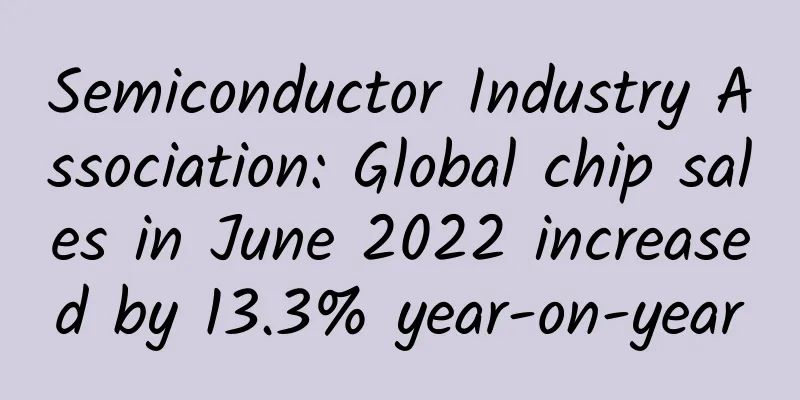Semiconductor Industry Association: Global chip sales in June 2022 increased by 13.3% year-on-year

|
The latest statistics released by the Semiconductor Industry Association, headquartered in Washington, show that global chip sales growth has slowed for six consecutive months, which may be another sign that the global economy is falling into recession due to rising interest rates and increased geopolitical risks. Data showed that global chip sales grew 13.3% year-on-year in June, down from 18% in May. The current slowdown is the longest since 2018. Quarterly growth in chip sales has been closely tied to the performance of the global economy in recent decades. The latest weakness comes as concerns grow about a global recession, prompting chipmakers such as Samsung Electronics to consider scaling back investment plans. Chips have become critical components in a world that has become increasingly reliant on digital products and services, especially during the COVID-19 pandemic, when much work and education have been conducted remotely. Chip sales have begun to cool as central banks around the world begin a race to raise interest rates to fight spiraling inflation. The outlook for the world economy has deteriorated rapidly this year, and chip sales have slowed along with it, according to a global tracker by Bloomberg Economics. Trade data from South Korea, the world's largest memory chip producer, also showed signs of a downturn in the international economy. Chip export growth slowed from 10.7% in June to 2.1% in July, slowing for the fourth consecutive month. In June, chip inventories saw the largest increase in more than six years. The situation in Taiwan Province of China, another key player in the electronics supply chain, is similar to that in South Korea. The latest data showed that Taiwan's manufacturing sector contracted in June and July, with production and demand falling sharply, with new export orders falling the most. In the United States, gross domestic product has fallen for two straight quarters, but the National Bureau of Economic Research has declined to call it a recession. In Europe, factory activity plunged in June, further darkening the outlook for the continent and the world. Still, the IMF sees a global expansion this year, and a slowdown in chip sales doesn’t necessarily mean a recession is coming. But it will help us learn more about the health of the international economy, which relies heavily on making tiny components for everything from cars to smartphones to computers. From NetEase Technology |
Recommend
Want to make your Android more unique? Try DIYing an icon pack
As we all know, one of the characteristics of And...
Case analysis: Xiaohongshu advertising strategy!
This article will take Cemoy, an Australian skinc...
Toutiao Wei Toutiao project, what content does Toutiao Wei Toutiao publish?
Wei Toutiao is a sub-function of Toutiao. It is r...
Tik Tok live broadcast layout and strategy!
Recently, it has been found that many brands are ...
One-trick solution for multi-screen collaboration between mobile phones and computers
Introduction Everyone should know that Huawei pho...
12 Best Strategies for Attracting and Retaining App Users
As more and more companies create independently b...
Online education: Which one has more opportunities, B2C or C2C?
Since 2014, Internet products in the field of onl...
Big data tells you what the elderly are busy with when they go online?
This era does not only belong to young people. In...
CNBC: Ford's U.S. sales in May 2022 fell only 4.5% from the same period last year
Ford Motor's U.S. sales in May fell just 4.5%...
Smart home five-year outlook: big data and greater security
Smart home is the next stop for smart technology,...
5 Brand Promotion Strategy Models
The market is changing, the industry is changing,...
Fold up the small table, open the sunshade...Why are there so many "strange" rules when flying?
Compared to taking a train or a car, taking a pla...
Is there a health risk to soaking your feet in hot water? These 4 types of people should be careful!
Soaking your feet in hot water before going to be...
Google crawls 30 billion in-app information and recommends apps when searching for content
Google has just launched a new mobile search feat...
Scientific analysis: Why couples shouldn't take a shower together
appendix: 1. We think that bathing together is wo...









